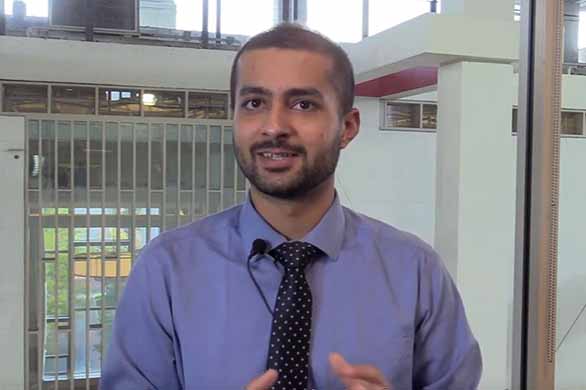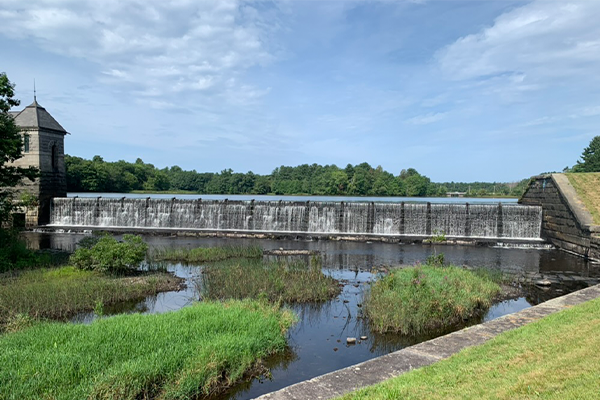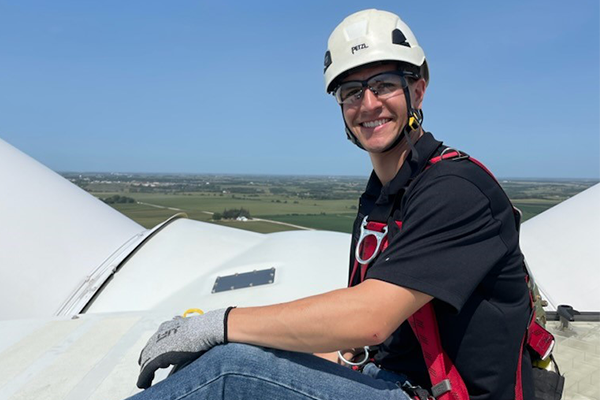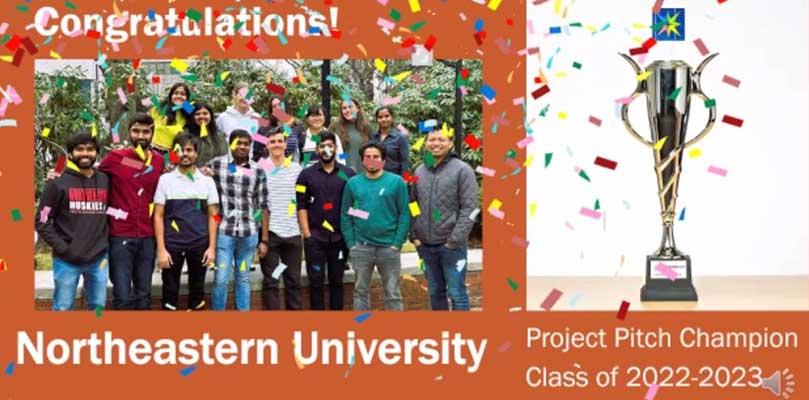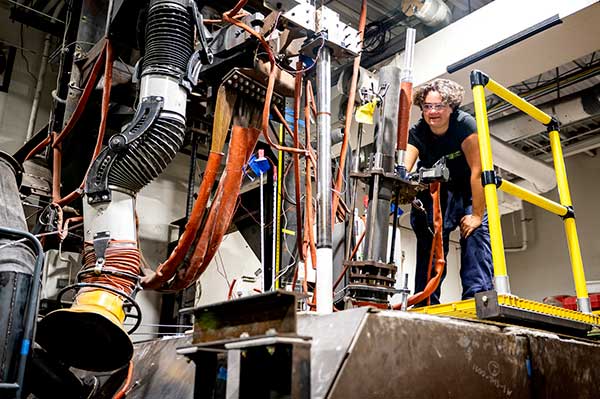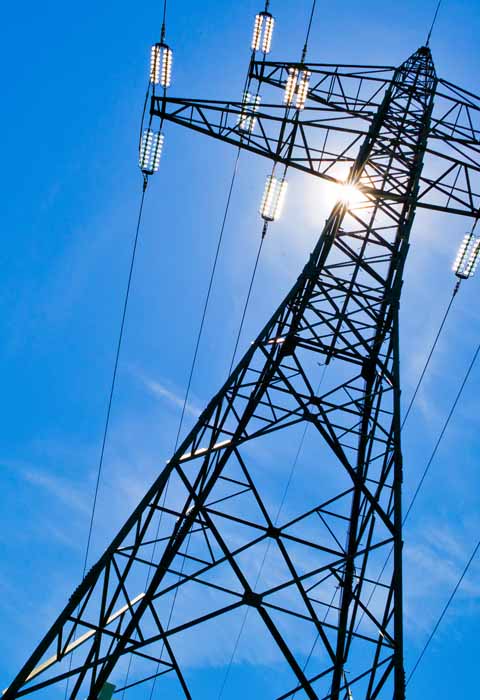
Master of Science in Energy Systems
Master of Science in Energy Systems
The Intersection of Engineering, Business, and Policy
The Master of Science, MS, in Energy Systems degree program integrates the technology side of energy systems development with the financial planning needed to effectively implement these new technologies. The Master’s in Energy Systems creates a high-level signature, multidisciplinary graduate program for the engineer or technical business major who is pursuing (or would like to pursue) an industrial or public planning based career.
The program’s mission is to educate students in current and future energy systems technologies, to integrate energy-related technologies with the economics and financial considerations required to implement them, and to develop leadership and decision-making skills to implement energy systems in either the private or public sectors of the global market. The program will expose students to a combination of academic and corporate experience in energy systems.
Program Option for non-technical backgrounds: A version of the MS in Energy Systems program is available for students with first-year calculus, physics and chemistry in their undergrad studies, but no prior exposure to thermos-sciences. Named Energy Systems Academic Link (AL), this program provides students the foundation skills necessary to gain the skills needed to create and implement energy solutions. Students in this program begin the program by taking two core courses that cover topics across thermal sciences and math along with the general energy systems curriculum.
Innovative Curriculum - MS in Energy Systems
The program curriculum ** features a multidisciplinary range of electives from five different academic colleges at Northeastern. The curriculum is flexibly designed with a set of four core courses in engineering knowledge and finance in addition to four electives. The core courses help relate these electives back to energy-related engineering concepts, including power strategies, energy renewal, sustainable energy solutions, energy storage, energy conversion, and energy efficiency. By integrating concepts across these disciplines, our students learn that implementing energy solutions requires an economic solution as well as an engineering one.
Students are exposed to business educators and practicing professionals and have the opportunity to participate in a six-month co-op experience. Practicing professionals with experience in the industry who have successfully implemented energy systems or devices and policies are actively involved in the program as adjunct professors and invited speakers. Through this curriculum and interaction with practitioners, students should be prepared to effectively integrate energy system development over a broad spectrum of technologies with the financial requirements to successfully implement them and to compete in the global energy market.
**curriculum varies with the online/hybrid format
Students interested in the Master of Science in Energy Systems degree program may apply to one of two programs, depending on their background. Upon successful completion of either program, students will earn a Master of Science in Energy Systems.
Students with a Bachelor’s degree in engineering may apply to the 32 credit Master of Science in Energy Systems.
Students with first-year calculus, physics and chemistry in their undergrad studies, but no prior exposure to thermos-sciences may apply to the 40 credit Master of Science in Energy Systems – Academic Link program. Students take two Academic Link core courses that will provide them with an introduction to the fundamentals of thermodynamics and math that are necessary to be successful in the energy systems program.
Both the Master of Science in Energy Systems and Academic Link programs are available at our Boston campus and with online completion options.
Online Experience
- Study on your own schedule, accompanied by clear guidance from your instructor.
- Variety of course offerings: online programs offer all required courses, as well as the most frequently chosen electives. This ensures you have access to the courses you need and want most.
- Extensive resources: all students have access to the university library’s online collections.
- Connection to faculty and students: led by instructors trained in online instruction, our virtual classes are designed to create a community of peers that learn, discuss, and support each other – both in class and beyond.
Over 15 graduate certificates are available to provide students the opportunity to develop a specialization in an area of their choice. Certificates can be taken in addition to or in combination with a master’s degree, or provide a pathway to a master’s degree in Northeastern’s College of Engineering. Master’s programs can also be combined with a Gordon Engineering Leadership certificate. Students should consult with their faculty advisor regarding these options.
- An ability to identify, formulate, and solve complex engineering/scientific/quantitative problems.
- An ability to explain and apply engineering design principles, as appropriate to the program’s educational objectives.
- An ability to produce solutions that meet specified end-user needs with consideration of public health, safety, and welfare, as well as global, cultural, social, environmental, and economic factors.
- An ability to recognize the engineering tools/principles needed for decision making and/or policy planning that will deliver minimally polluting, energy-efficient systems to the global market.
Gordon Institute of Engineering Leadership
Students may complete a Master of Science in Energy Systems in addition to earning a Graduate Certificate in Engineering Leadership. Students must apply and be admitted to the Gordon Engineering Leadership Program in order to pursue this option. The program requires fulfillment of the 16-semester-hour curriculum required to earn the Graduate Certificate in Engineering Leadership, which includes an industry-based challenge project with multiple mentors. The integrated 36-semester-hour degree and certificate will require 20 hours of advisor-approved energy systems technical courses.
Experiential Learning
Northeastern combines rigorous academics with experiential learning and research to prepare students for real world engineering challenges. The Cooperative Education Program, also known as a “co-op,” is one of the largest and most innovative in the world, and Northeastern is one of only a few that offers a Co-op Program for graduate students. Through this program students gain up to eight months of professional experience employed in their field of interest as part of the academic curriculum, giving them a competitive advantage after graduation.
Program Goals
Students are prepared to effectively integrate energy system development over a broad spectrum of technologies with the financial requirements to successfully implement them and to compete in the global energy market. Graduates of the program are involved in decision making and policy planning to deliver minimally-polluting, energy-efficient systems to the global market. They have the training necessary to lead efforts within companies to plan and implement new energy generation investments, realize energy efficiency improvements at the system level, and participate in energy and environmental markets such as cap-and-trade systems.
Academic Advising
The Academic Advisors in the Graduate Student Services office can help answer many of your questions and assist with various concerns regarding your program and student record. Use the link below to also determine which questions can be answered by your Faculty Program Advisors and OGS Advisors.
Admissions & Aid
Ready to take the next step? Review degree requirements to see courses needed to complete this degree. Then, explore ways to fund your education. Finally, review admissions information to see our deadlines and gather the materials you need to Apply.

